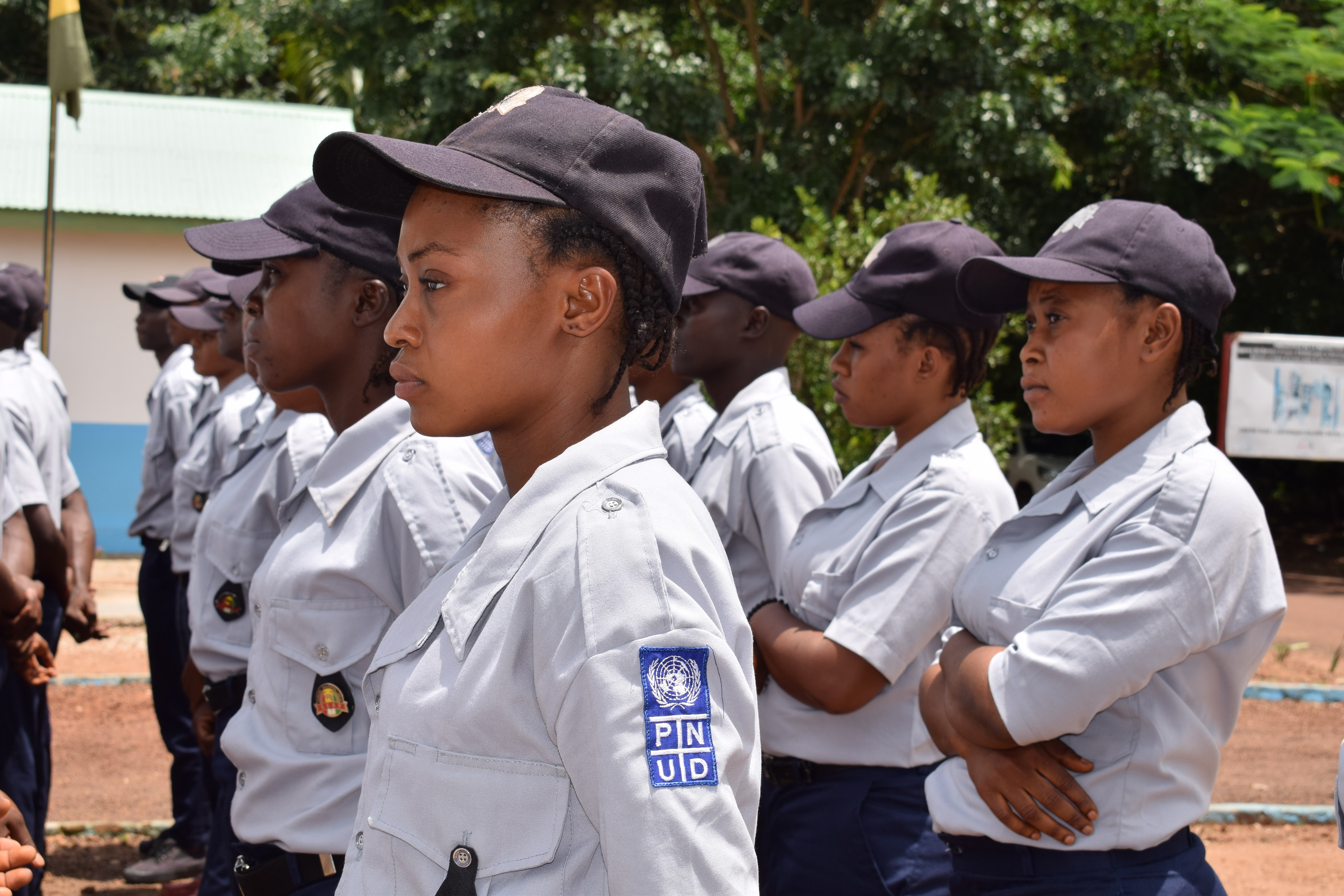Statement delivered by Asako Okai, UN Assistant Secretary-General & Director, UNDP Crisis Bureau
Third United Nations Chiefs of Police Summit (UNCOPS)
September 1, 2022

UNDP works on police capacity building in 65 countries, out of which in 16 contexts partnering with UN Police. These joint efforts illustrate the promise of inclusive multilateralism through the local knowledge, earned trust, and practical experience of UNDP's partners.
Excellencies, distinguished delegates and police leaders, ladies, and gentlemen,
I am very pleased to be with you on behalf of UNDP for this third Summit of the United Nations Chiefs of Police.
Let me first say that it is my distinct honor to share the stage this morning with Under-Secretary-General Lacroix and H.E. Ambassador Thomas-Greenfield, whose perspectives and partnership are so essential to this important topic.
And of course, I am particularly grateful for the opportunity to address the critical issues of peace and security with - you – the senior police leaders who work on the front lines of the world’s most fragile settings.
Because at this moment of profound crisis, when threats to lives, dignity, and livelihoods are more widespread than any time in modern history, few concerns are as essential to the 2030 Agenda and our collective future than our commitment to peace and sustainable development.
Today, that commitment requires more than just resolve.
In a world of increasing conflict and interconnected crises, we must accelerate implementation of the Action for Peacekeeping and A4P+. In particular, from UNDP’s perspective, we need stronger engagement to advance political solutions to conflict, while strengthening security, national reconciliation, rule of law, human rights and sustainable development in parallel.
And while there is no one-size-fits-all approach to lasting peace – we know that strong partnerships with greater coherence among an inclusive set of actors, holds the key.
Partnerships like the one between UNDP and Department of Peace Operations’ Office of Rule of Law and Security Institutions – especially UN Police –under the UN Global Focal Point for Rule of Law allow us to extend our impact for the development of security systems that are people-centered, right-sized, and publicly-accountable.
UNDP has been working on police capacity building in 65 countries, out of which in 16 contexts we are proud to partner with UN Police. These joint efforts illustrate the promise of inclusive multilateralism through the local knowledge, earned trust, and practical experience of our partners.
But now, we must build on and accelerate these efforts by scaling past successes and sharing lessons learned.
We can look to our joint support provided to the National Police in Mali, the Democratic Republic of Congo, and Central African Republic where we created specialized units to investigate cases of sexual and gender-based violence and provided medical, psychological, and legal support to survivors.
Or the support that UNDP and the UN Police provided through the Global Focal Point in places like Mali, and Somalia, where we developed legal frameworks, built up community police and civil society capacities, elaborated local security and prevention plans, and organized community awareness.
And in South Sudan, where UNDP and UNMISS Police Component trained more than 1,100 police officers on human rights, confidence building, community policing, and trauma management.
The determined and often high-risk work of UN Police and our counterparts in national police systems are also an essential complement to UNDP’s programmatic support towards gender responsive national police institutions and progress on Women Peace and Security.
In Afghanistan and Timor-Leste, UNDP works with the national police to enhance the quality of services for women and girls by developing gender responsive programmes and increasing the number of female police officers.
And in Zambia, UNDP’s project on ‘women in peace operations’ supports Government efforts to increase women’s participation in the Zambia Police Service including the procurement of gender-sensitive equipment and the training of female officers as peacekeepers.
Joint endeavors like these represent the type of integrated approaches and policy coherence needed to advance Action for Peacekeeping and A4P+.
They also demonstrate the indispensable role of local norms, ideas, and capacities as the only sustainable solution to dynamics of conflict, fragility, and underdevelopment.
Through support to, and cooperation with, host countries, civil society, and local stakeholders, our goal is to strengthen national ownership and local capacities under cohesive collective strategies that enable our partners to exit fragility and restart development towards more sustainable societies.
I would urge member states as per your commitments to Action for Peacekeeping to further invest in conflict prevention, peacebuilding, community security, rule of law, accountability, and human rights – delivered at scale and in balance with local needs and capacities.
Excellencies, distinguished guests, dear colleagues,
The challenges our peacekeepers face today are more complex than ever before.
And at this moment of historic inflection for both people and planet, the maintenance of peace and security must be a shared priority.
UNDP remains committed to realizing this peace through rights-based, people-centered approaches.
Together with our colleagues in the UN Department of Peace Operations and UN Police, we can achieve the vision of Action for Peacekeeping and advance the SDGs in even the most fragile and protracted crisis settings.
In this system-wide effort, each of us has a role to play and I look forward to all we can accomplish together.
Thank you.

 Locations
Locations